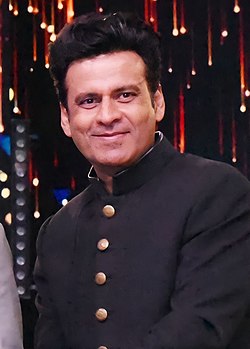

After breaking free from prison, notorious serial killer Carl Bhojraj heads back to Mumbai. Inspector Zende, determined to bring him to justice, embarks on a tense manhunt. As the chase intensifies, Zende must outsmart the cunning Bhojraj to prevent more lives from being lost in the city's shadows.
September 5
2025
Release Date
Hindi
Language
52 minutes
1 hours
Running Time
Available on
Cast


Manoj Bajpayee


Jim Sarbh


Sachin Khedekar


Girija Oak


Bhau Kadam


Ketaki Narayan










Sukumar Tudu










Devaang Bagga










Sumit Chandra










Vikas Chavan










Harish Dudhade










Rishika Nag










Pooja Rajput










Aditya Nath Uppal










Amit Yadav
3.0
Average Rating
The above-mentioned average rating is based on the derived ratings of multiple review platforms
OH Review


Movie Review: Inspector Zende
Plot
Inspector Zende delivers a unique twist on the crime thriller genre, taking inspiration from the real-life escapades of the notorious conman, Charles Sobhraj—rebranded in this film as Carl Bhojraj. The story starts with Bhojraj’s dramatic prison break from Tihar jail in 1986, prompting panic and a frantic manhunt by the Mumbai police. Enter Inspector Madhukar Zende, a steadfast and witty cop, portrayed with earthy charm by Manoj Bajpayee. Zende, who had previously apprehended Bhojraj, is determined to track him down once again, reigniting a tense cat-and-mouse game. Set against the backdrop of 1970s and 80s Mumbai, the narrative not only incorporates elements of suspense and comedy but also nods to the socio-political climate of the time. Mandlekar, the director, crafts a plot that oscillates between engaging chase sequences and lighthearted comedic interactions among the police squad. As Zende mobilizes his team to Goa to capture the slippery Bhojraj, the film raises questions about the nature of justice and policing in an era devoid of modern technological aids, making for an intriguing watch. The film explores Zende’s character, focusing on how he balances his familial responsibilities with his dedication to duty. His relationships, especially with his supportive wife, Viju, add depth to the narrative, highlighting the human side of an otherwise grim crime story. The plot cleverly pokes fun at cop tropes while paying homage to the infectious spirit of Mumbai, effectively marrying comedy with crime in a way that is both entertaining and thought-provoking. The presence of a supporting cast adds layers to the story as well. Characters like Zende's bumbling subordinate provide comic relief and foster camaraderie within the team, with their nervous antics juxtaposing the high stakes of their mission. Although the film grapples with familiar crime-comedy clichés, its charm lies in Bajpayee’s sharp wit and uncanny ability to navigate the film’s lighter moments. Ultimately, the plot of Inspector Zende might not be groundbreaking, but it succeeds in crafting a lively, comedic interpretation of true crime that leaves the audience wanting more.
Acting
The performances in Inspector Zende are the film’s shining highlight, with Manoj Bajpayee leading the charge as the titular character. Bajpayee easily infuses the role with a mix of humor, gravitas, and relatability. His portrayal of Inspector Zende, a middle-class Mumbai cop, is layered with nuance, displaying the character's determination to catch Bhojraj while also managing the demands of family life. Bajpayee’s skill in transitioning from serious moments to lighthearted exchanges showcases his versatility as an actor, expertly drawing the audience into Zende’s world and making them root for him. Opposite Bajpayee is Jim Sarbh, who embodies the flamboyant, charismatic Carl Bhojraj. Sarbh’s performance is mesmerizing as he navigates the complexities of a sociopathic character, entrenching himself in the role with an unmistakable magnetism. His portrayal of Bhojraj as a smooth-talking, taunting criminal adds a level of intrigue to the film, providing a welcome contrast to Zende’s grounded personality. Despite some of the role’s limitations, Sarbh’s attempt to inject charisma into Bhojraj’s character succeeds in captivating the audience's attention. The supporting cast, including Bhalchandra Kadam as Zende's anxious subordinate and Girija Oak as his supportive wife, Viju, adds richness to the narrative. Kadam's comedic timing and nervous energy provide delightful comic relief, creating a dynamic rapport with Bajpayee that enhances the film’s lighter moments. Oak, too, delivers a relatable performance as a dedicated wife, effortlessly embodying the supportive partner trope, which adds a familiar warmth to Inspector Zende's life. However, some supporting roles veer into cliché, portraying slightly one-dimensional characters that, while entertaining, fail to make a lasting impact. The film leans heavily on Bajpayee’s and Sarbh’s performances to carry these shortcomings, and fortunately, they deliver strong enough portrayals to keep viewers engaged throughout. Inspector Zende is undoubtedly an ensemble affair, but it’s the lead actors' chemistry and ability to balance humor with depth that truly makes the film shine. The weight of the performances elevates the material, allowing the film to explore themes of duty, morality, and family in an engaging manner.
Cinematography
Cinematography in Inspector Zende plays a critical role in immersing viewers into the film's vibrant world, capturing the essence of Mumbai in the 1980s. The visuals are strikingly nostalgic, recalling a time characterized by bustling streets, cultural vibrancy, and a sense of communal camaraderie. The cinematographer skillfully combines broad shots of the city with meticulous close-ups of the characters, allowing the audience to connect personally with Zende’s plight and the chaos of his surroundings. There’s a vivid portrayal of Mumbai’s uniqueness, from the narrow lanes bustling with life to the iconic structures of the city, which serves as the backdrop for Zende’s humble beginnings and professional challenges. The bustling markets contrast powerfully with the posh hotels frequented by Bhojraj, showcasing the stark differences in socio-economic classes throughout the city. The cinematography cleverly highlights these disparities, grounding the narrative in a realistic atmosphere that feels true to life. Additionally, the action sequences are executed with commendable skill. The chase scenes, whether through crowded streets or secluded locations in Goa, maintain a brisk pace that keeps viewers on the edge of their seats. The cinematographer's eye for dynamic framing captures the essential thrill of Zende's pursuit while providing a steady balance between action, humor, and emotional moments. Lighting in the film also deserves commendation. The hues employed reflect the era sympathetically, enhancing the authenticity of the period setting and reinforcing the film's nostalgic elements. It effectively transports the audience back in time, inviting them to experience the thrill of the chase alongside Zende. Overall, the cinematography in Inspector Zende is not just a visual treat but a significant narrative device that adds depth to the storytelling. With its rich, vibrant depiction of Mumbai, it engages the audience's senses and elevates the overall viewing experience, making it a memorable representation of a bygone era, punctuated by a mix of humor and earnest pursuits.
Direction
Inspector Zende marks the directorial debut of Chinmay D. Mandlekar, who takes a refreshing leap into the Hindi film space, steering this comedic crime thriller with a balance of levity and suspense. Mandlekar’s direction is commendable as he navigates through the intricate storyline while managing to weave humor into the tense narrative. Through a deft understanding of pacing, Mandlekar keeps the audience engaged, emphasizing character-driven moments that anchor the film in its more heartfelt scenes. His unique approach transforms a potentially dark biopic into a family-friendly narrative, steering clear of the trope of a grim examination of crime. Instead, he opts for a joyous adventure that resonates with a wider audience. Mandlekar’s decision to infuse comic relief into crime drama elevates the film's charm, making it more than just a chase sequence—it becomes a lighthearted quest fueled by the passion of a dedicated cop. The blending of various genres is tackled with finesse. Mandlekar maintains a tone that oscillates between comedy and crime, creating a pleasant viewing experience that entertains without becoming overly heavy or convoluted. The film’s humor is particularly effective in its lighter dialogues, and the comedic situations Zende finds himself in foster a sense of relatability for the audience. Mandlekar also exhibits a strong grasp of character interactions, allowing the chemistry among actors to flourish. Scenes filled with banter and situational comedy demonstrate his ability to coordinate actors in a way that enhances their comedic timing. The genuine camaraderie among Zende’s team feels authentic, making their mission resonate emotionally with viewers while evoking laughter. However, while there are stand-out moments that reflect Mandlekar’s thoughtful direction, the film occasionally falters under the weight of predictable storytelling and clichéd character arcs. The potential for creating tension or expanding on a subversive narrative sometimes gets diluted by the comedic elements. Despite these missteps, Mandlekar’s vision and willingness to experiment with the crime genre ultimately pay off, producing a memorable film that honors real-life events with a playful twist. In summary, Chinmay D. Mandlekar’s direction makes Inspector Zende an enjoyable romp through the darker side of comedy and crime. It may not redefine the genre, but it successfully reimagines a true crime story with heart and humor, making the film worth a watch for its engaging moments and lively narrative style.
Conclusion
Inspector Zende may not break conventional barriers in the crime-comedy genre, but it manages to serve up a delightful watch that reflects the nostalgic vibe of 1980s Mumbai, peppered with humor and heart. With a gifted lead like Manoj Bajpayee anchoring the film as the witty and determined Inspector Zende, complemented by a charismatic performance from Jim Sarbh as the elusive Carl Bhojraj, the film emerges as a lighthearted exploration of crime and justice. The film’s attempts to combine humor with a real-life crime story make it accessible to younger audiences, arguably turning what could have been a darker narrative into family-friendly entertainment. While certain aspects, like the predictable plot and clichés, highlight the film's limitations, the overall execution captures the spirit of Mumbai during an era devoid of sophisticated technology and forensics. This blend of nostalgia, humor, and well-crafted performances resonates, creating a lively cinematic experience. Additionally, Mandlekar's directorial choices enhance the film’s appeal, allowing it to stand out in a crowded streaming space. By infusing lightness into serious themes, he fosters connection between the story and the audience, creating an inviting atmosphere for viewers. While Inspector Zende might not have the weighty elements of a serious biopic, it confidently declares itself an entertaining intrigue, synonymous with the lighter side of cinema—keeping audiences laughing while delivering a narrative rich with character and charm. Ultimately, whether you're a fan of true crime stories, comedy, or simply seeking a light-hearted film that doesn't take itself too seriously, Inspector Zende is worth checking out. Its skilled lead performances, engaging direction, and vibrant storytelling make it a refreshing addition to the ever-evolving landscape of Indian cinema on streaming platforms. So gather your friends, grab some snacks, and enjoy the whimsical escapades of Inspector Zende’s pursuit of the ‘Swimsuit Killer’!
Share this review
The Great Reviews
Times of India
Rediff
NDTV
India TV
More like this
Mardaani 3
In Mardaani 3, in a gripping race against time, brave officer Shivani Shivaji Roy returns to save girls who have mysteriously vanished. With danger lurking a...


